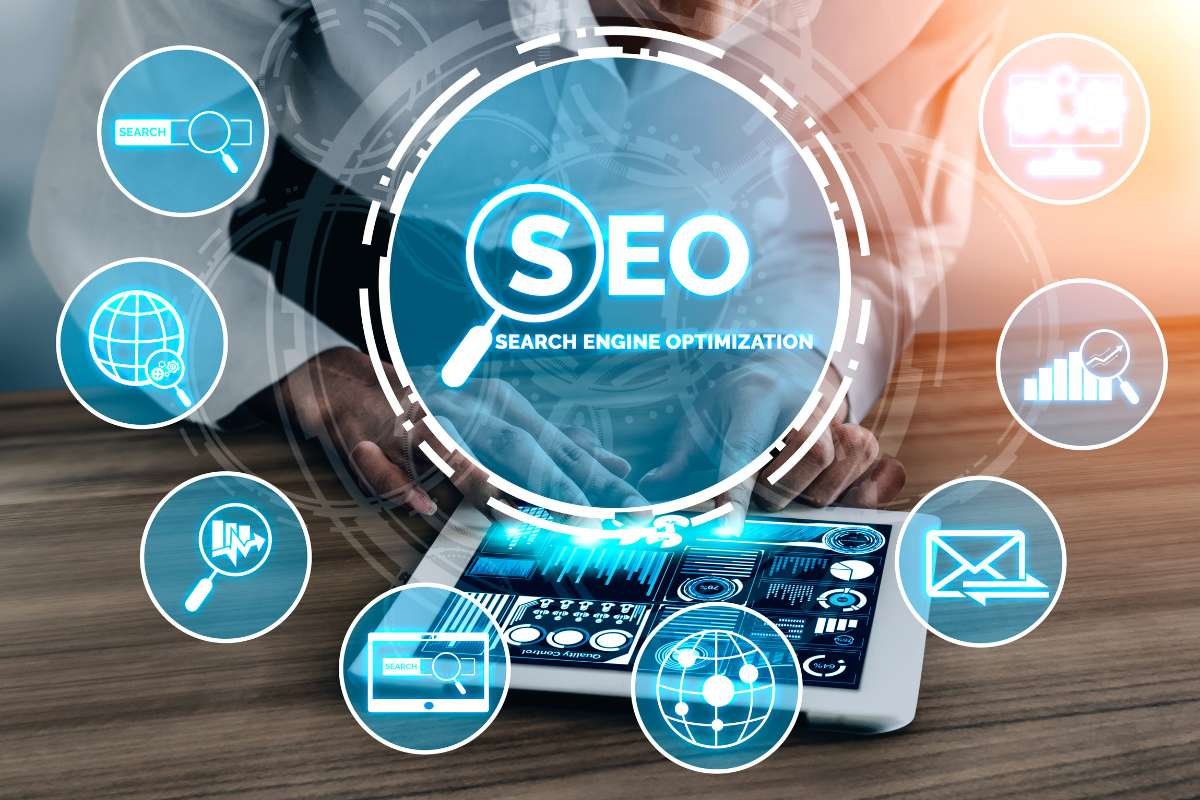SEO in the age of AI has changed the approach of businesses and marketers toward search engine optimization. As search engines integrate AI into their algorithms, marketers must adapt to these changes to stay competitive. But how exactly is AI transforming SEO, and what strategies can you implement to succeed today? Let’s find out.
The Role of AI in Modern SEO
Artificial intelligence is changing how search engines interpret content and deliver relevant results to users. Gone are the days when SEO was purely about keywords and backlinks. Today, AI algorithms assess a wide range of factors, from user behavior to content quality, to determine search rankings.
How SEO in the Age of AI is Evolving?
1. Natural Language Processing (NLP)
One of the most significant AI advancements in SEO is natural language processing. Search engines like Google now understand search queries in a more conversational and nuanced way, thanks to AI models such as BERT (Bidirectional Encoder Representations from Transformers). These models help Google interpret the context of words in a query, providing more accurate and relevant search results.
For marketers, this means that optimizing for exact-match keywords is no longer enough. Instead, focusing on user intent and creating content that answers real questions in a natural, conversational tone is key.
2. Voice Search and AI Assistants

AI-powered voice assistants, such as Siri, Alexa, and Google Assistant, have become a significant part of how users interact with search engines. Voice search queries are often longer and more conversational than typed queries, meaning SEO strategies must evolve to accommodate this trend.
To optimize for SEO in the age of AI and voice search, businesses should prioritize long-tail keywords, natural language queries, and local SEO. Additionally, ensuring your content is concise and provides clear answers to user questions will improve its chances of being featured in voice search results.
3. AI-Powered Content Creation and Optimization
AI tools like GPT-4, OpenAI’s powerful language model, are being used by marketers to generate and optimize content. These tools can create relevant blog posts, optimize meta tags, and even suggest keyword variations to improve rankings.
However, while AI can assist with content creation, it’s crucial to balance AI-generated content with human input. Ensuring that your content is high-quality, unique, and tailored to your target audience is vital for staying competitive in search rankings.
How Google Uses AI in Search Algorithms?
Google, the dominant player in the search engine market, has integrated AI across its search ecosystem to provide users with more relevant and personalized results. Understanding how Google uses AI can help marketers align their SEO strategies with these advancements.
1. RankBrain
RankBrain is one of the first AI systems Google implemented to improve search result rankings. It uses machine learning to interpret search queries, especially those that are ambiguous or haven’t been seen before. RankBrain considers the user’s location, search history, and intent to deliver personalized search results.
To optimize for RankBrain, focus on user intent. This means creating content that directly answers searchers’ questions, covers topics comprehensively, and provides valuable insights.
2. BERT
Google’s BERT algorithm, introduced in 2019, uses natural language processing to better understand the context of words in a query. This allows Google to deliver more accurate results for long-tail keywords and complex search queries.
Optimizing for BERT requires content that reads naturally and provides clear answers to user intent. It’s less about repeating exact keywords and more about structuring content logically, so it flows in a way that makes sense to users and search engines alike.
3. MUM (Multitask Unified Model)
Google’s latest AI advancement, MUM, is a game-changer for SEO in the age of AI. MUM can analyze and interpret content in multiple languages, process different media types (text, images, video), and provide more comprehensive answers to complex queries.
For marketers, this means that optimizing content for different formats and languages is becoming increasingly important. Incorporating video, audio, and images alongside text can improve your content’s visibility and search engine performance.
Strategies for SEO in the Age of AI
Now that you understand how AI is transforming SEO, it’s time to explore strategies for optimizing your website and content in this new era. Here are actionable steps you can take to stay ahead:
1. Prioritize User Experience (UX)
With AI algorithms focusing heavily on user intent, optimizing your website for a seamless user experience is essential. This includes improving page load times, ensuring mobile-friendliness, and creating intuitive navigation. Google’s Core Web Vitals, which measure page performance, are now a key ranking factor, making UX optimization critical.
2. Focus on High-Quality, Relevant Content
AI-powered algorithms prioritize content that is relevant, valuable, and trustworthy. Instead of keyword stuffing, focus on answering users’ questions thoroughly and providing in-depth content. Long-form articles that address a topic comprehensively are more likely to perform well in AI-driven search algorithms.
Additionally, keeping content up to date is essential. AI can detect when content is outdated, and Google rewards websites that regularly update their information to reflect current trends and data.
3. Optimize for Semantic Search

In the age of AI, search engines are becoming more adept at understanding the meaning behind search queries. Semantic search, which focuses on the searcher’s intent and contextual understanding, plays a significant role in SEO in the age of AI.
To optimize for semantic search, create content that covers related topics and concepts, not just isolated keywords. Incorporating synonyms and related terms naturally throughout your content will help AI-powered search engines understand the breadth of your expertise on a topic.
4. Leverage Structured Data
Structured data, or schema markup, is a type of code that helps search engines understand the content on your website more effectively. It enables AI-driven search engines to deliver rich search results, such as featured snippets, knowledge graphs, and FAQs.
By implementing structured data, you can improve your website’s visibility in search results and increase the chances of appearing in valuable featured snippets. This is especially important for SEO in the age of AI, where search engines are prioritizing content that provides direct answers to user queries.
5. Embrace AI Tools for SEO Optimization
Several AI tools can enhance your SEO strategy by analyzing data, providing optimization recommendations, and automating tasks. Tools like Clearscope, MarketMuse, and Surfer SEO use AI to analyze top-ranking content, suggest keywords, and optimize readability.
By using AI-powered SEO tools, you can gain insights into what works for your target audience and refine your content strategy accordingly.
The Future of SEO in the Age of AI

The future of SEO in the age of AI is full of possibilities, but it also requires marketers to be adaptable. As AI continues to evolve, search engines will become even more sophisticated at understanding user intent and delivering personalized search experiences.
To succeed, marketers must focus on creating high-quality content that meets user needs, optimizing for user experience, and staying ahead of AI advancements. By embracing AI-driven SEO strategies, businesses can stay competitive in this dynamic digital landscape.
Summing Up
SEO in the age of AI is complex yet evolving at a rapid pace. From natural language processing to AI-powered content creation, AI in SEO is changing the way website gets ranked and how users find relevant information.
By understanding these changes and adopting new strategies—such as focusing on user intent, leveraging structured data, and optimizing for voice search—businesses can rank their content well and drive traffic and engagement in the age of AI.










